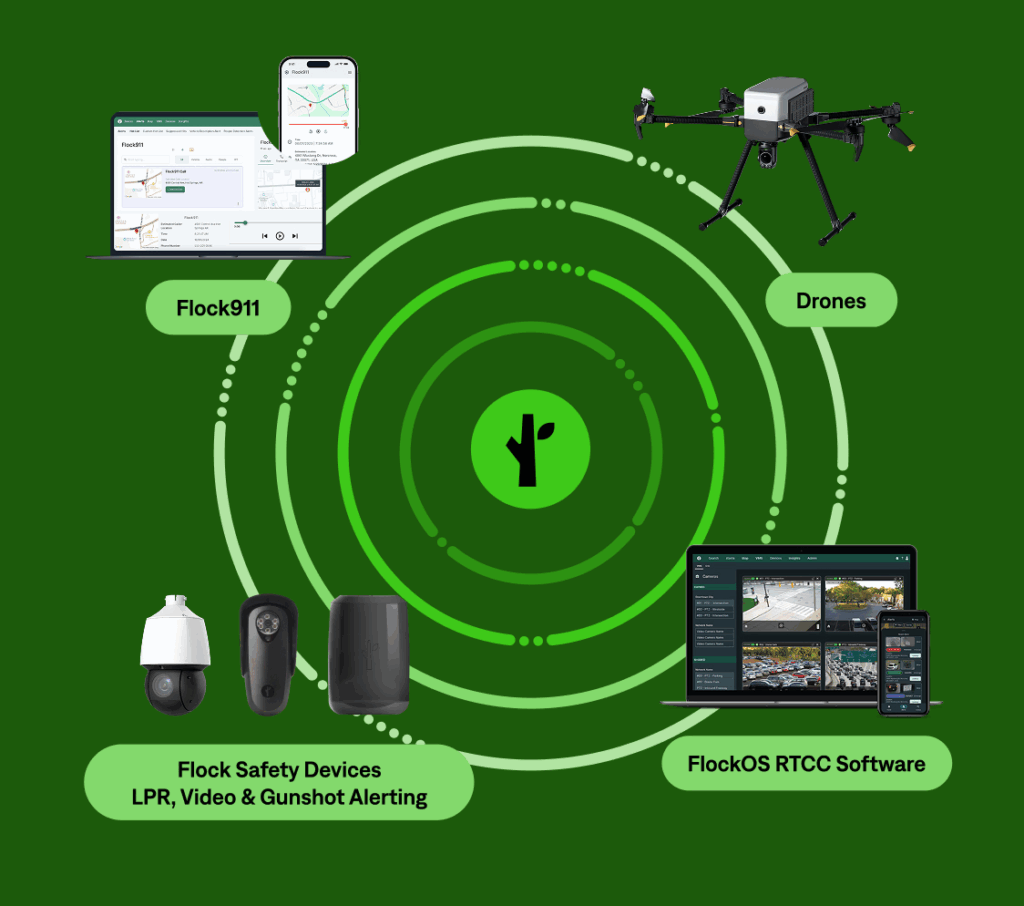Amazon Expands Police Access Through Flock Safety Partnership
Amazon’s Ring is opening relations with U.S. law enforcement. Through a new partnership with Flock Safety, police agencies across America gain easier access to Ring camera footage from private homes and neighborhoods. The agreement links Ring’s Neighbors app with Flock’s surveillance platforms. Jointly, the platforms allow nearly 5,000 local law enforcement agencies to request video footage directly from Ring users. Requests go through Flock’s network, which already serves 6,000 communities and 1,000 businesses across the U.S.
Privacy advocates are already alarmed. Critics argue the partnership deepens the country’s reliance on private surveillance infrastructure, creating risks of overreach and misuse — issues that have haunted Ring for years.
What’s Happening & Why This Matters
Ring’s “Community Requests” Feature Returns

Ring’s partnership with Flock Safety reintroduces a controversial feature once known as Request for Assistance (RFA), retired last year after backlash. It now reappears as Community Requests, letting law enforcement post public notices in the Neighbors app.
Each request must include a specific location, time frame, and a unique investigation code describing the incident. Residents receive the alert, review it anonymously, and decide whether to share their footage. Law enforcement never sees who got the request or who declined.
Ring describes the change as “a secure way for communities to work together.” The company insists this cooperation remains voluntary — a claim privacy experts challenge.
Jay Stanley, senior policy analyst at the ACLU Speech, Privacy, and Technology Project, says the partnership “builds a dangerous, nationwide mass-surveillance infrastructure.”
Flock Safety’s Expanding Influence

Flock Safety, best known for its license plate recognition cameras, already supports investigations for federal agencies, including the U.S. Immigration and Customs Enforcement (ICE), Secret Service, and the Navy’s Criminal Investigative Service (NCIS).
According to Senator Ron Wyden (D-Ore.), the agencies access Flock’s databases, enabling nationwide tracking through AI-assisted searches. In a recent letter to Flock CEO Garrett Langley, Wyden accused the company of neglecting oversight:
“Abuses of your product are not only likely but inevitable, and Flock is unable and uninterested in preventing them.”
Wyden’s criticism echoes long-standing fears: once private footage enters shared databases, it risks misuse beyond the intended scope. Flock has defended its systems. The company states that only law enforcement can view submitted videos and that all data transmissions remain encrypted.
Still, Flock’s capabilities go beyond vehicle tracking. Its AI can identify people using descriptors like “man in a blue shirt and cowboy hat”. Many questions are triggered about profiling, data retention, and civil liberties.
The Privacy Flashpoint
The collaboration is a notable event in the corporate surveillance and policing debate. Amazon’s Ring already occupies millions of American doorsteps, They provide law enforcement indirect access to an extended visual network of neighborhoods, driveways, and sidewalks.
Supporters argue these partnerships improve crime prevention and investigations, offering local police faster leads and visual evidence. But opponents warn the deal(s) expands surveillance under the guise of safety — often without judicial oversight.
Controversy explodes as federal agencies increasingly integrate commercial AI surveillance tools, bypassing traditional warrant systems. The question is not whether footage helps solve crimes, but who controls access and oversight.
TF Summary: What’s Next
The Ring–Flock partnership transforms how police gather neighborhood data — and how Americans experience privacy. Expect lawmakers to pursue tighter digital privacy laws, especially around data sharing between private tech firms and law enforcement.
MY FORECAST: As AI-powered surveillance networks spread, pressure will mount for transparency and independent auditing. Ring’s history of backpedaling on privacy promises suggests that public trust is fragile. When cameras see everything, accountability must be just as visible.
— Text-to-Speech (TTS) provided by gspeech


